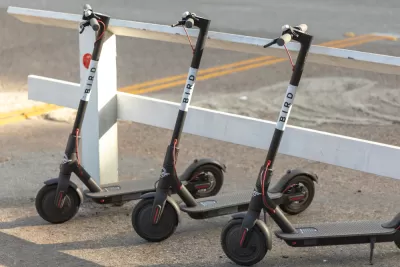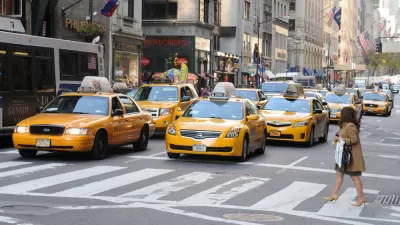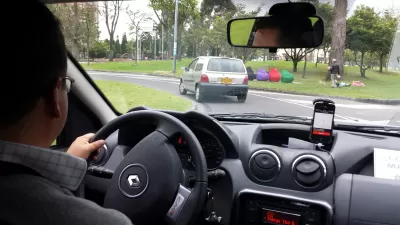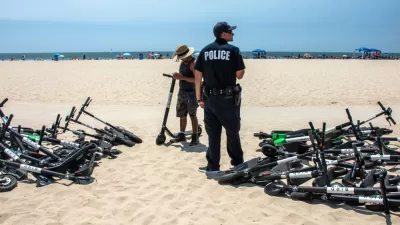Examples like Elon Musk's subway plan in Chicago, app-driven electric scooters littering sidewalks, and Amazon's general preponderance may point to a tech-dominated urban future. But are localities ceding too much power to the private sector?

Farhad Manjoo takes cities to task for allowing tech firms like Uber, Amazon, and, more recently, Bird, to steamroll in and essentially disrupt the civic processes that restrict everyone else from doing what they please with urban space.
Federal and state authorities, Manjoo says, haven't stepped up to confront housing shortages and infrastructural problems. That gives tech firms an opening to court public opinion. At the same time, online media increasingly drives public attention toward national issues at the expense of local ones.
"One reason tech companies can command greater say in local issues is that many other local institutions, from small businesses to local newspapers, have lost much of their influence — thanks, in large part, to the internet."
The case can be made that tech-driven transport alternatives are a boon for cities. Take the ridesharing explosion, alternative modes like electric scooters, or even projects like Elon Musk's Loop in Chicago. But as Manjoo writes about companies like Bird, "the real problem is that they just appeared out of nowhere one day, suddenly seizing the sidewalks, and many citizens felt they had no real agency in the decision."
FULL STORY: How Tech Companies Conquered America’s Cities

Alabama: Trump Terminates Settlements for Black Communities Harmed By Raw Sewage
Trump deemed the landmark civil rights agreement “illegal DEI and environmental justice policy.”

Planetizen Federal Action Tracker
A weekly monitor of how Trump’s orders and actions are impacting planners and planning in America.

The 120 Year Old Tiny Home Villages That Sheltered San Francisco’s Earthquake Refugees
More than a century ago, San Francisco mobilized to house thousands of residents displaced by the 1906 earthquake. Could their strategy offer a model for the present?

In Both Crashes and Crime, Public Transportation is Far Safer than Driving
Contrary to popular assumptions, public transportation has far lower crash and crime rates than automobile travel. For safer communities, improve and encourage transit travel.

Report: Zoning Reforms Should Complement Nashville’s Ambitious Transit Plan
Without reform, restrictive zoning codes will limit the impact of the city’s planned transit expansion and could exclude some of the residents who depend on transit the most.

Judge Orders Release of Frozen IRA, IIJA Funding
The decision is a victory for environmental groups who charged that freezing funds for critical infrastructure and disaster response programs caused “real and irreparable harm” to communities.
Urban Design for Planners 1: Software Tools
This six-course series explores essential urban design concepts using open source software and equips planners with the tools they need to participate fully in the urban design process.
Planning for Universal Design
Learn the tools for implementing Universal Design in planning regulations.
Clanton & Associates, Inc.
Jessamine County Fiscal Court
Institute for Housing and Urban Development Studies (IHS)
City of Grandview
Harvard GSD Executive Education
Toledo-Lucas County Plan Commissions
Salt Lake City
NYU Wagner Graduate School of Public Service





























